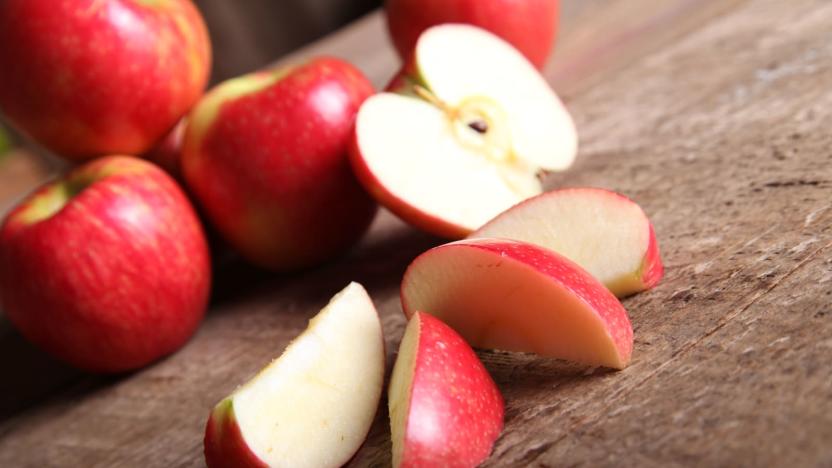GeneticallyModifiedFoods
Latest

The USDA won't regulate genetically edited plants
The US Department of Agriculture has zero plans to regulate plants altered with gene-editing technologies, according to the agency's Secretary Sonny Perdue. It won't prevent the release of crops created using CRISPR, for instance, so long as the final product is something that could've been developed through traditional breeding techniques and it's not a plant pest or achieved with the help of plant pests. That means giving plants traits like resistance to disease, chemicals or flooding and bigger seeds is A-OK, since those could be achieved at a much slower rate with traditional breeding. However, entirely new plants that aren't possible in nature created using, say, genes from several distant species, aren't acceptable.

Non-browning GMO apple slices go on sale next month
Mushrooms won't be the only non-browning produce on store shelves for long. Thanks to genetic modification, we'll soon see Golden Delicious apples that don't oxidize for three weeks after being cut, bruised or bitten into. They'll be sold in packages of slices and will go on sale in the Midwest in February and March. According to Arctic, the company responsible for the fruit, this feat was achieved by "silencing" polyphenol oxidase (PPO) expression.

Genetically modified mushrooms cleared by the USDA
While the ethical debate rages on about genetically modified human embryos, the United States Department of Agriculture has cleared its first CRISPR-modified organism. CRISPR, in case you've forgotten, is an editing technique that can alter the genome of almost any organism pretty easily. Penn State University's agriculture department used the method on white button mushrooms to include an anti-browning phenotype that reduced the polyphenol oxidase enzyme (turns produce brown when exposed to air) down to about 70 percent effectiveness. Popular Science notes that because CRISPR doesn't use bacteria or viruses to affect the DNA like previous methods have, these 'shrooms aren't considered "plant pests."

